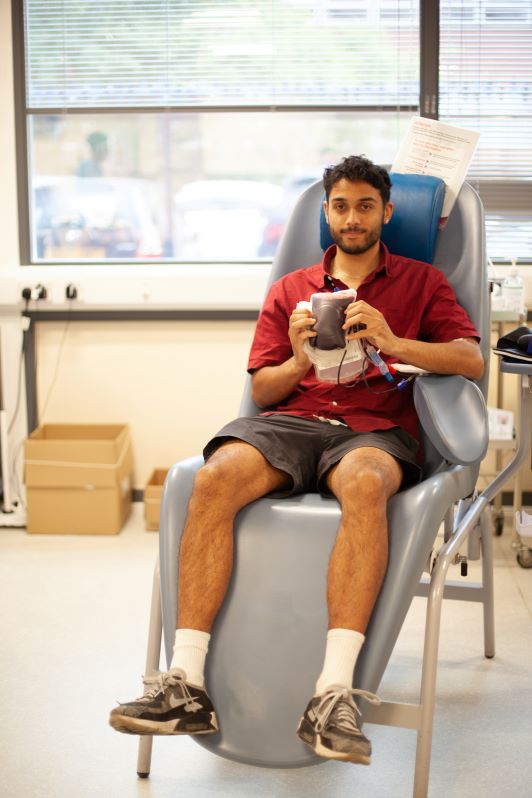Ask the Experts - Autumn 2022
Donations of blood, platelets and plasma are simple and easy ways to make an immeasurable impact to other people’s lives.
They are, however, still a marvel of modern medicine and it’s common for donors to have questions about the process.
Thankfully, the experts in our clinical support team are on hand with the answers…
Will giving blood affect my sporting performance?
After donating blood, we recommend to all our donors that you should avoid strenuous exercise for 24 hours, as your performance may be affected, and there may also be an increased risk of either bleeding from the needle insertion site, fainting or feeling faint.
For donors competing or participating in a big race or planning extended or intense bouts of exercise, we would recommend donating no less than two months beforehand as donating closer prior to these events may impact performance and prolong recovery time after the event.
For high-level competitors it may be best to schedule blood donation out of season or early in training when adequate rest, food, fluids, and modification of the training regime can be undertaken to enable uncomplicated recovery from the donation. We would also recommend that they discuss with their own team doctor about becoming a blood donor initially.
Regular intensive exercise, including running and weight training, can cause low iron levels, so to keep you healthy and fit as well as able to pass the haemoglobin test before you donate, you might want to consider including more iron-rich foods in your diet. Find out more about how to boost your iron levels here.
Am I donating a pint?
Although a lot of people think we take a pint of blood with donation, the actual amount is 470ml, so not quite a British Imperial pint which is 568ml.
 After donation our bodies have an amazing capacity to replace the blood that has been given.
After donation our bodies have an amazing capacity to replace the blood that has been given.
About 55 per cent of blood is comprised of plasma, of which 90 per cent is water. So almost half of the blood that you donate is actually water. That's why it is important for you to ensure that you are well hydrated in the days leading up to donation and that you drink plenty of water after you've donated. You need to replace the fluid lost during donation and to restore your blood volume levels back to normal.
(Picture: a blood donation is 470ml, not quite a full pint)
The fluid that you lose during donation can cause a drop in blood pressure causing you to feel faint and dizzy. To help prevent this from happening we also ask you to drink 500mls of water immediately before you donate. We provide this water but please help us reduce our plastic usage by bringing your own refillable bottle.
Blood makes up approximately 8 per cent of your body weight. You must weigh at least 50kg (7 stone 12 lbs) for blood donation. This is so the volume of blood donated will be less than 15 per cent of your circulating blood volume. Taking a greater proportion would cause problems because the body would not be able to adjust quickly enough.

